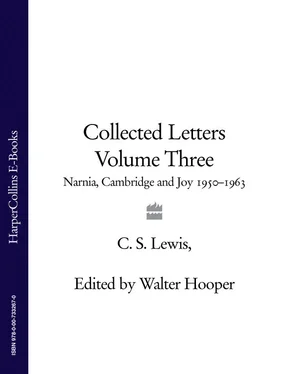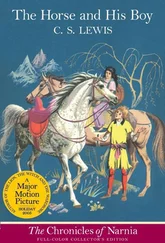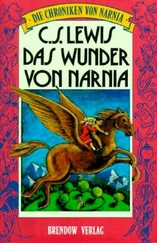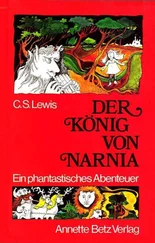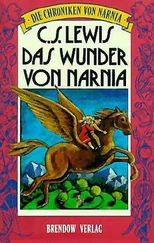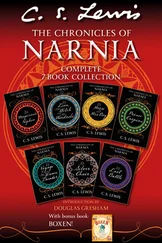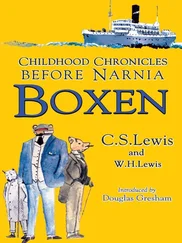C. S. Lewis
*
from the College of St Mary Magdalen
July 14th 1952
Thank you, dearest Father, both for the tracts of your Congregation and for your letter dated July 7th.
The times we live in are, as you say, grave: whether ‘graver than all others in history’ I do not know. But the evil that is closest always seems to be the most serious: for as with the eye so with the heart, it is a matter of one’s own perspective. However, if our times are indeed the worst, if That Day 148 is indeed now approaching, what remains but that we should rejoice because our redemption is now nearer and say with St John: ‘Amen; come quickly, Lord Jesus.’ 149
Meanwhile our only security is that The Day may find us working each one in his own station and especially (giving up dissensions) fulfilling that supreme command that we love one another. 150
Let us ever pray for each other.
Farewell: and may there abide with you and me that peace which no one can take from us. 151
C. S. Lewis
TO RHONA BODLE (BOD): TS
REF.52/294.
Magdalen College,
Oxford.
16th July 1952.
Dear Miss Bodle,
Thanks for what you tell me. 152 I will indeed. All good wishes to yourself. In great haste,
Yours sincerely,
C. S. Lewis
TO WILLIAM BORST (P):
Magdalen College,
Oxford.
July 21st 52
Dear Borst
I return the copy (signed) of your official letter. I am flattered that Mr. Dunn 153 should suppose me capable of making any useful comment. But he probably knows much more about Chaucer than I do and certainly knows more about the audience we are addressing.
Also, I must have a holiday from English poetry! 154 (I’m doing an orgy of the classics at present: feeling that, all said and done, the really delightful thing about any bit of ancient poetry is that it’s not English and doesn’t rhyme). * So I shall probably be able to do v. little about the Chaucer Reader. But give Mr. Dunn my compliments and don’t let him misunderstand my motives.
Yours
C. S. Lewis
TO GEORGE SAYER(W):
Coll. Magd.
July 22nd 1952
My dear George
Hurrah! We look forward v. much to seeing you at the Kilns for such time as you choose from Sept 15 to 22nd. I hope you will choose the whole.
Tolkien does usually answer letters in the end. At present I can only plead for him that he is in the middle of Vivas. 155 I know he appreciated Moira’s letter v. much: he said he meant to run down to Malvern if you wd. have him for a night, and deliver you the next chunk of The Lord . I will jog him if I see him but I shan’t till Vivas are over. V. glad to hear you have better news. Love to Moira. I’d ask you to bring Sir Henry 156 with you only neither he or Pushkin like that sort of thing.
Yours
Jack
TO I. O. EVANS (W): TS
Magdalen Coll.
23/7/52.
Dear Evans,
Many thanks for the loan of the magazines; which my brother and I however found rather above our heads. It seems to me that we are reaching a stage at which scientifiction has far too much science and too little fiction to make an agreeable brew.
Yours,
C. S. Lewis
TO ANNE SCOTT (BOD): 157
Magdalen
July 28th 1952
Dear Mrs. Scott–
Thanks very much for your most rich and interesting letter which has brought Charles back to me v. vividly so that I shall feel for an hour or so as if I had met him again. It will also be a valuable permanent addition to my Caroline documents. 158
About your (1.), I think my view of ‘canonical Gawaine’ had some basis in something C.W. said, 159 but yours sounds likely too—in view of the parallel from the Meditation. 160 (2.) (‘Women in the world’s base’), 161 I think you must be right. I can’t imagine why I didn’t see this. 162 (3.) Clearly I was wrong about the date of composition of Prayers of the Pope. 163 But your words ‘points in the poem had coincided with points in the war’ implies I take it, that the images existed in some shape prior to the events: wh. was my main point. 164 (4.) I find your interpretation of Proofs, Roofs etc. v. hard. Even Mercury—Language–Proofs is to me v. strained, & after that I love the planets altogether. At least if that is what he meant it must be the worst passage in the whole cycle! 165
By the way ‘The time on my hands has gone to my head’ is a phrase you must make something of: it cries out for literary use.
Thanks v. much again. I’ve enjoyed this bit of the morning.
Yours sincerely
C. S. Lewis
TO VERA GEBBERT (W): TS
REF.52/103.
Magdalen College,
Oxford.
28th July 1952.
Dear Mrs. Gebbert,
(My brother remarks that ‘the new name is’nt properly run in yet, and does’nt slip easily off the typewriter’). Many thanks indeed for the grand parcel, which arrived this morning, and which we are putting aside as a consolation for the end of our holidays. If at the beginning I had known for how long and how generously you were going to provision us, I would have kept a record of what you have sent; it must run into the hundredweights by this time! To say nothing of the imponderable benefit of having made a good friend.
We both leave here on Wednesday morning, and if all goes well, slip through the Iron Curtain about noon on Thursday; it is quite a dramatic performance. You go chugging along in the Dublin express through rocks and heather (‘The Gate of the North’), and presently pass an enormous Union lack on the side of the track. As soon as you are past the flag, prices for drinks in the dining car drop about fifty per cent: you are through and out of the clutches of the Welfare State (now known by the way as ‘The Farewell State’). By tea time we shall be sitting on a bungalow verandah, three miles from anywhere, looking across Dundalk Bay at a range of blue mountains.
The weather has of course played its usual practical joke; we had a blistering month until Saturday night: during which the temperature dropped about twenty degrees without the slightest warning, and now the question is not how many white linen suits to take away with one, but how to pack a winter overcoat for the ‘summer’ evenings.
Does anyone in America understand American politics? Certainly no one over here can make out what is happening, in spite of numerous inspired articles by so called experts; people who pretend to know all about it—on the strength of a lecturing tour in the States–assure me that a Taft victory would have been a disaster and an Eisenhower one would be grand. Which, as they belong to the same party, seems odd to me; others tell me that as the Democrats are sure to get in anyhow, the Taft-Eisenhower battle was of no importance. 166 I thought I was going to learn something from an old lady in Connecticut the other day, 167 but at the end of eight pages so hot that they nearly burnt my fingers, all I could gather was that the ‘Dumbocrats’ as she called them, are a sort of mixture of Hitler, the Russian secret police, and the inmates of the village lunatic asylum: but no doubt this view is a little prejudiced.
I suppose by this time you have got Mr. Gebbert broken in, and trotting nicely in harness? Please give him my kind regards. I hope to hear from you soon again, as we are both eager to know how you are settling down amongst the elks, auks, reindeer, silver miners and so forth.
With all good wishes.
yours sincerely,
C. S. Lewis
TO ROGER LANCELYN GREEN (BOD):
Derryherk House Hotel,
Lough Melvin,
Ballyshannon,
Co. Donegal,
Ireland
Aug 31/52
My dear Roger
Читать дальше
